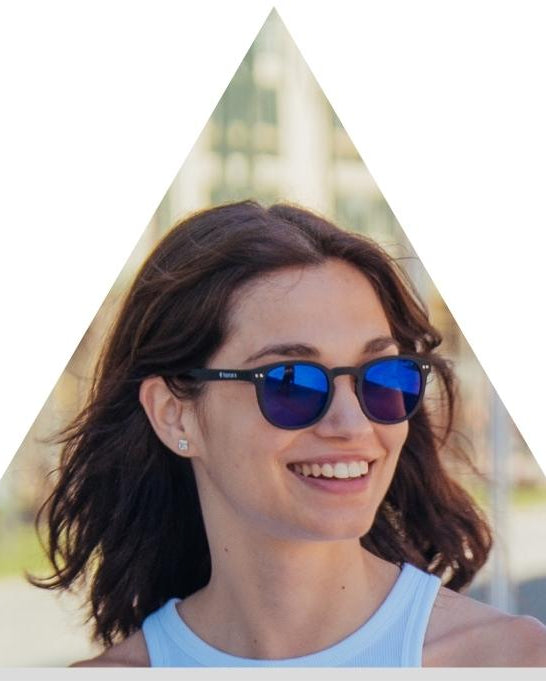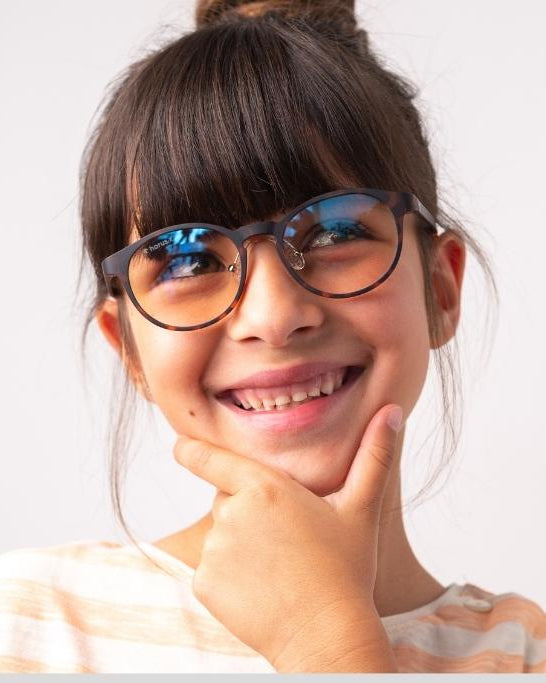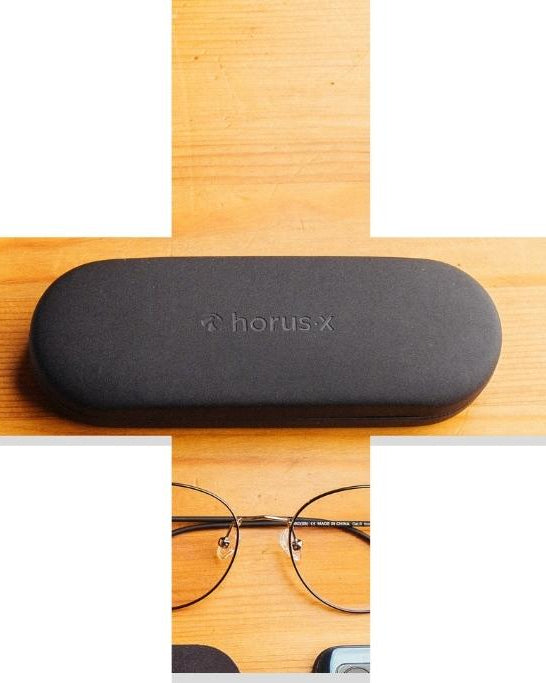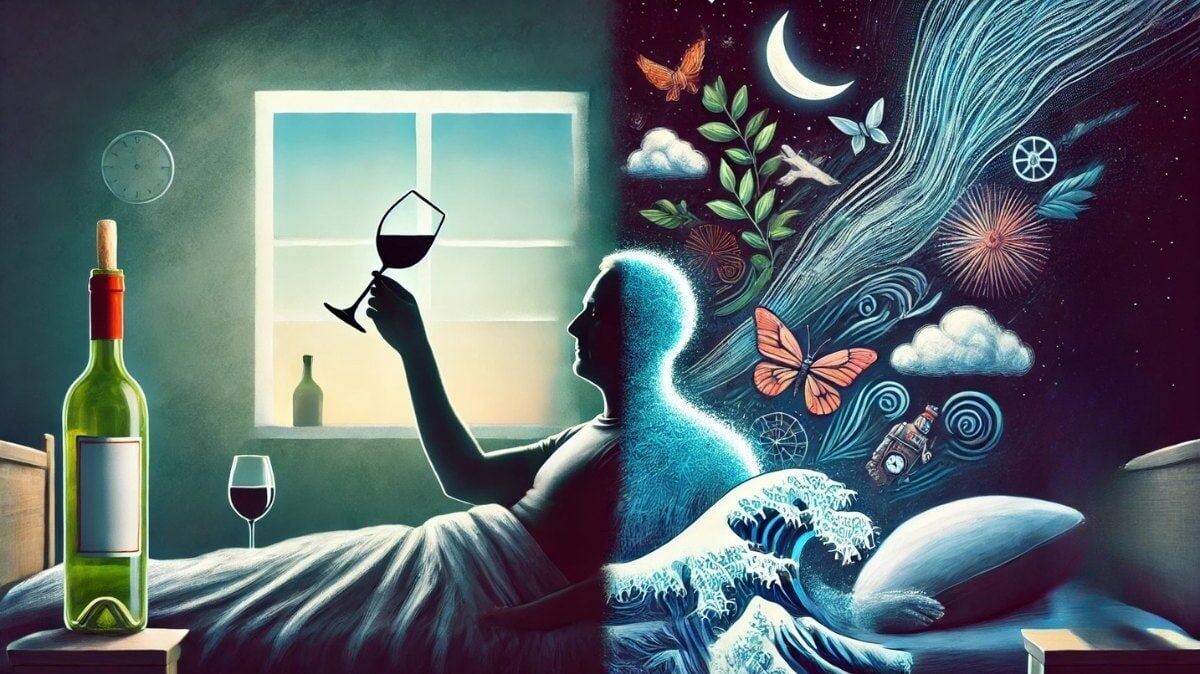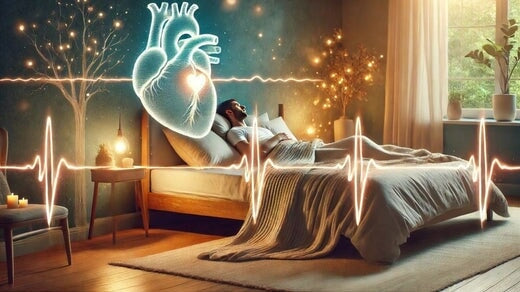As you know, blue light and sleep are among our favorite subjects. And today, instead of just talking to you about the harmful effects of LEDs and screens on your nights, we also wanted to talk about the usefulness of blue light for sleeping well.
⚠️ Spoiler: no, we're not going to give you excuses to spend your nights on the remake of Resident Evil 4 under the pretext that it's good for your sleep, and even less if you do it without blue light blocking glasses!
In this article :
-
👨🏫 Blue light: some reminders
-
💤 The benefits of blue light on your sleep?
-
➡️ Other benefits of blue light
-
🚨 The dangers of artificial blue light
-
🛏 Our tips for better sleep
Blue light: some reminders
💡 Psst! To be unbeatable on the subject, we advise you to consult our complete file but here is a small recap.

Light is a wave : thus, the spectrum of light visible to a human eye breaks down into several colors 🌈
🔵 Blue light corresponds to the portion of the light spectrum whose wavelength is between 380 and 500 nanometers. It is therefore the type of visible light that produces the greatest amount of energy.
The 2 sources of blue light are natural light (daylight) and artificial light from screens and LED lighting in particular.
Blue light itself breaks down into 2 categories:
-
Turquoise blue light (between 450 and 500 nanometers) which is essential for the regulation of our biological rhythm,
-
The "harmful" and "ultra harmful" blue light (between 380 and 450 nanometers) closer to UV which carries risks for the health of your eyes and the quality of our sleep.
👉 This distinction is important in the impact of blue light on your sleep!
The benefits of blue light on your sleep

Because no, blue light is not that bad! It all depends on the frequency, the duration of exposure and the time at which you expose yourself to it.
⏳ Blue light regulates the production of melatonin, the sleep and sleep hormone: it is therefore essential for our circadian rhythm (the day/night rhythm).
Indeed, melatonin is known to promote sleep. Its secretion is directly influenced by blue light, which blocks it in the morning to promote our natural awakening with sunrise ☀️
Conversely, when daylight declines, the amount of blue light decreases and the production of melatonin increases: our body therefore understands that it is time to switch to night mode 🌙
You now understand why blue light is essential to our functioning (but also why exposure to screens can impact your sleep at the end of the day, be patient, we'll tell you about it right after).
Other benefits of blue light

Know that it also has an impact on your mood : it would stimulate reactivity, allow you to stay focused and help fight against depression. Daylight increases both the level of serotonin, the hormone of happiness, but also of cortisol, a hormone which, in reasonable quantities, keeps us alert and dynamic.
🍹 So it's a "good mood" cocktail that is served to us every morning!
A British study even highlighted the link between daily exposure to daylight and improved mood . We better understand the famous "seasonal mood disorder" alias the depression that can be felt in winter directly linked to the lack of light.
Finally, we sometimes even use blue light (artificial, this time) in the context of dermatological care: the treatment of acne with blue light is more and more practiced in the office or at home.
The dangers of artificial blue light
We told you about it above, blue light has a direct influence on the production of melatonin and therefore sleep.

If in normal times natural light regulates our circadian rhythm and sets our sleep cycles on the day/night alternation, exposure to artificial blue light can disrupt this well-oiled mechanism and have harmful consequences on our sleep.
The problem is that it is omnipresent in our modern societies : urban lighting, bulbs and LEDs in our interiors and screens used non-stop even in the bedroom!
Unless we live in a cave, our human body is therefore no longer truly locked into a natural rhythm influenced by sunlight, but rather disturbed by the excessive use of screens in particular: this is how insomnia, difficulty falling asleep, disturbance of sleep cycles .
This phenomenon is reinforced by the lack of exposure to natural light.
But that's not all ! Overexposure to screens and artificial lighting can also cause harmful effects on your health (studies still in progress):
-
short term : eyestrain, headaches, blurred vision , back and neck pain, eye irritation, stinging, watery eyes
-
long-term : decrease in visual acuity, irreversible damage to vision, worsening of AMD (age-related macular degeneration)
Some studies are beginning to make the link between overexposure to blue lights and cognitive disorders (especially ADHD) but also hormonal disorders (acceleration of puberty).
One more reason to protect our children from screens !
Our tips for better sleep
So yes, all of this may seem worrying, but don't panic: imitating the impact of screens and lighting on our sleep and our health is possible!
Here are some tips for better sleep :
🥗 Improve your lifestyle: we don't necessarily think about it, but your physical activity, your diet and your hydration have an influence on your sleep. You suspect that a late meal and / or too difficult to digest is not ideal if you want to sleep like a baby. In the same way, remember to drink water (avoid alcohol or coffee) regularly during the day, and not all at once before bedtime.
🧘 ♀️ Fight against stress that can be a factor of insomnia. A tool that has proven itself with Horus X is meditation , which reduces anxiety and facilitates peaceful sleep.
🖥 Reduce your screen time: it's obvious! Stop exposing yourself to screens at least 1h30 before going to bed (and protect yourself effectively from their effects with quality anti-blue light glasses .)
🔦 Also think about lighting: as we said, LED light is also harmful to sleep. If you can, choose lighting in red or orange tones for your bedroom and sleep in complete darkness.
Last tip: get out of your cave (yes, it's a running gag)! You now know that daylight is particularly beneficial for setting you up with a more natural sleep rhythm, so let go of the controller and go for a walk 🚶
In summary: blue light for better sleep, is it possible?
Well...yes and no.
-
Natural blue light is essential to help our body differentiate day from night. It is also used in light therapy, whether to fight against depression or skin problems.
-
Conversely, overexposure to screens, especially at the end of the day, disturbs our sleep. Our instructions: turn off screens 1h30 before bedtime and no mobile phones on your bedside table!



